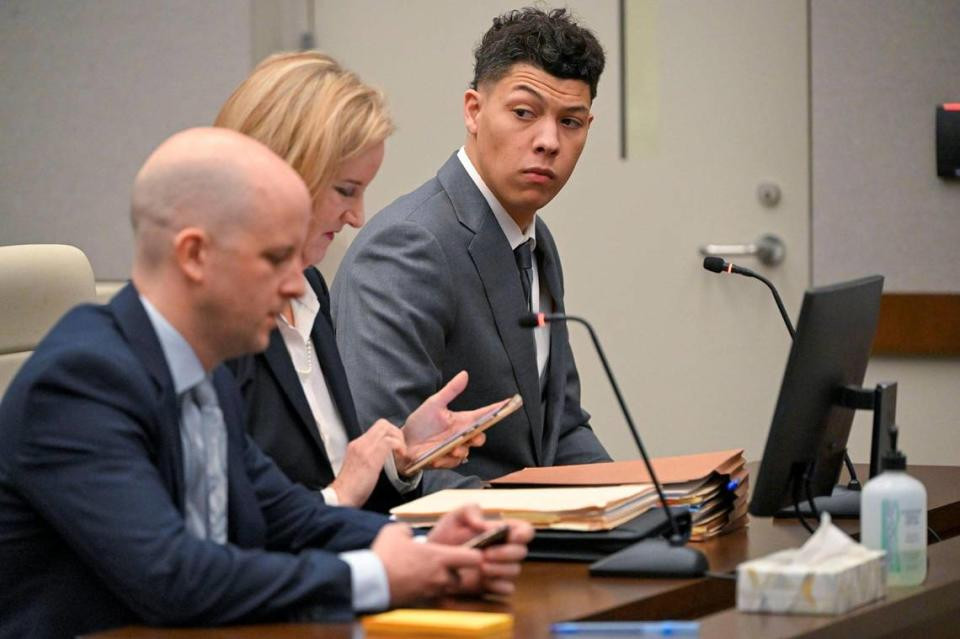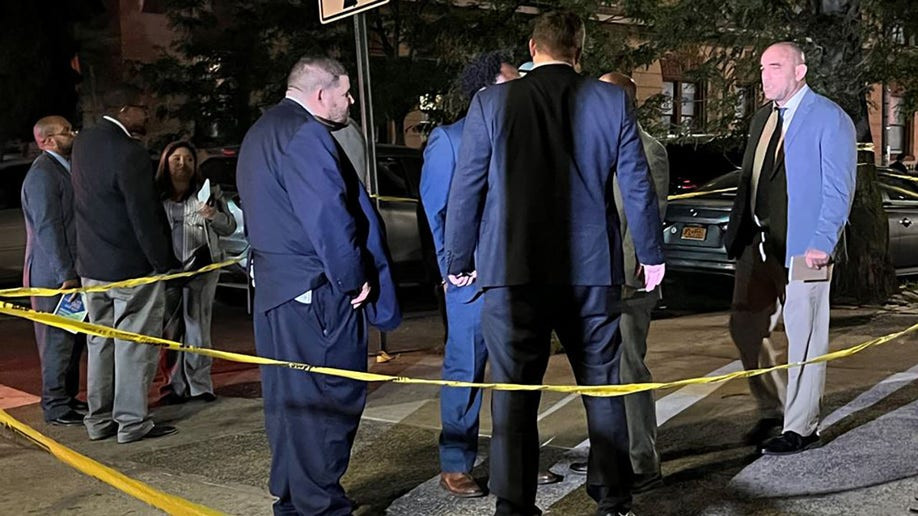Four months after California Attorney General Rob Bonta announced a slew of felony charges against a top advisor to the Los Angeles County district attorney, state prosecutors this week dropped three of the 11 counts but still pushed forward toward a trial.
Diana Teran, a former Los Angeles County Sheriff’s Department advisor who later oversaw ethics and integrity operations at the D.A.’s office, is accused of illegally using confidential personnel records. State prosecutors allege Teran broke the law three years ago when she flagged several sheriff’s deputies’ names for possible inclusion on an internal district attorney’s database of officers accused of misconduct.
Using Confidential Records
According to state prosecutors, Teran only knew the deputies’ names and alleged misdeeds in her role at the D.A.’s office because she’d accessed their records in 2018 while still working at the Sheriff’s Department. Teran’s lawyer, James Spertus, argues that the deputies’ records were already public in court cases and other records. Despite this, a preliminary hearing will determine whether there’s enough evidence to move ahead to trial.
The Case’s History
The allegations at the center of the case date back to 2018 when Teran worked as a constitutional police advisor for then-Sheriff Jim McDonnell. Her duties included accessing confidential deputy records and internal affairs investigations. The department used secret tracking software that kept records of the over 1,600 personnel files she searched for and reviewed. After leaving the Sheriff’s Department in late 2018, Teran joined the district attorney’s office. In 2021, she allegedly sent a list of 33 names and supporting documents to another prosecutor for possible inclusion in a Brady database, which contains officers with problematic disciplinary histories. The database derives its name from a landmark 1963 Supreme Court case that mandates prosecutors to disclose evidence favorable to a defendant, including evidence of police misconduct.
Examining the Allegations
An affidavit alleges that several of the names Teran emailed to fellow prosecutor Pamela Revel were deputies whose files she had accessed while working at the Sheriff’s Department. A state investigator searched news articles and public records requests and found that 11 of the names hadn’t been mentioned in public. This led to the allegation that Teran wouldn’t have been able to identify them were it not for her special access working at the SheriffDepartment.
Dropped Charges and Uncertainty
This week, the state dropped charges relating to Gonzalez, Negron, and one other deputy identified only as Deputy Doe 11 in court filings. The reason for dropping these charges remains unexplained by the DOJ, which has not responded to requests for comment. Judge Sam Ohta, presiding over the case, expressed skepticism about the state’s theories and questioned the point of pursuing the case, stating, “I don’t see this sort of factual scenario repeating all this often...Part of criminal law is to deter criminal conduct in the future so what are we trying to deter here?”
The case has drawn attention for its unique circumstances and the conflicting arguments presented by both sides. As the case moves forward, the preliminary hearing will be a crucial step in determining whether enough evidence exists to proceed to trial.
The Ongoing Debate
The case has also highlighted the broader issue of access to and misuse of confidential personnel records within law enforcement agencies. Teran’s defense rests on the argument that the information she used was already public, while the prosecution maintains that her access to the records while employed by the Sheriff’s Department enabled her to identify deputies whose information was not publicly known.
A Complex Legal Landscape
The debate surrounding the case underscores the complexities of balancing the public’s right to know with the need to protect sensitive information within law enforcement agencies. This case has raised questions about the proper use of confidential personnel records, the responsibilities of prosecutors in handling such information, and the boundaries between public and private information in the context of law enforcement investigations. The outcome of the case could have significant implications for future cases involving the use of confidential personnel records.
A Deeper Dive into the Case
The case has also exposed a broader pattern of alleged misconduct within the Los Angeles County Sheriff’s Department, including allegations of retaliation against whistleblowers, obstruction of justice, and cover-ups of misconduct. This has led to calls for greater transparency and accountability within the department.
Lessons Learned
The case serves as a reminder of the importance of safeguarding confidential information, particularly within law enforcement agencies. It also underscores the need for clear guidelines and protocols regarding the handling of such information to ensure transparency and accountability. The ongoing legal battle surrounding the case is likely to continue to garner attention as it sheds light on the delicate balance between protecting sensitive information and ensuring public safety.
What Lies Ahead?
The upcoming preliminary hearing will be crucial in determining whether Teran will face a full trial. The case, which has already drawn significant attention, is sure to remain in the spotlight as it raises important questions about the role of confidential information in law enforcement and the responsibilities of those who handle it. Whether Teran ultimately faces a trial and what the outcome of the case will be remains to be seen, but the case is already having a profound impact on the ongoing debate about transparency and accountability within law enforcement agencies.

















